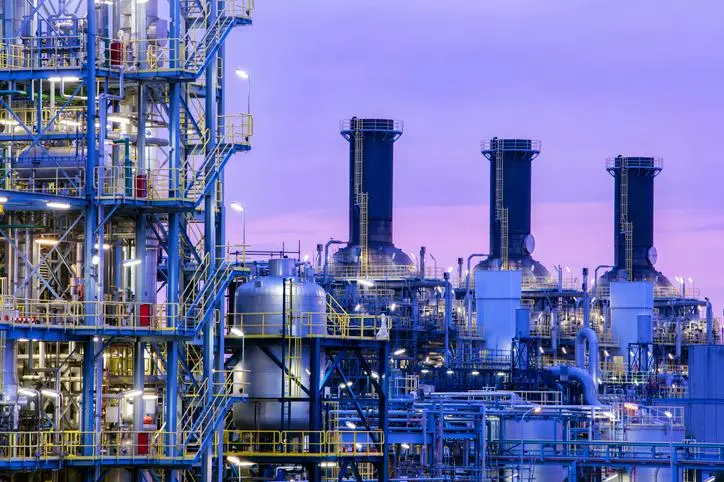PHOTO
Muscat: A plant that refines petroleum using technology that is reportedly less harmful to the environment than conventional methods is being set up in Oman, at a cost of $4.2 billion (OMR1.62 billion).
The factory is being built in the port town of Duqm through a public-private partnership between the Oman government and Canada Business Holdings, in collaboration with the Special Economic Zone Authority at Duqm (SEZAD). It is expected to produce about 300,000 barrels of oil a day, once operations begin.
“With the proper domestic support and encouragement, the refinery project should be able to produce our first batch of products towards the end of 2023,” said Moses Solemon, chairman and CEO of Canada Business Holdings.
“Like many precious resources of the earth, petroleum is stored underground. The elements found in hydrocarbons are natural components of all living organisms on our planet earth.”
“However, chemical processes involved in the refining of petroleum often produce hazardous materials, and they sadly fail to emulate the natural cycle of decomposition that converts waste into harmless natural ingredients that can be used and reintegrated into the natural environment,” he added.
The plant will use technology that reduces, among other hazardous wastes, the amount of sulphur emissions produced during the processing of petroleum. Sulphur dioxide and other oxides contribute to acid rain, which could harm fragile natural ecosystems and damage trees by stunting their growth and harming their foliage.
Trees and crops also do not thrive in areas that have high concentrations of sulphur and its oxides. The end product of this factory will have ultra-low sulphur content, and almost zero gases that contribute to acid rain.
“The chemical processes designed for our green petroleum refinery attempts to address such issues and fill in the gaps in conventional extraction processes, so that we are able to protect the planet even while processing natural resources,” Solemon said. “It is important we use modern technology responsibly.”
Expressing gratitude to the Omani government for enabling CBH to set up this plant, the company’s CEO added that the green extraction processes here would minimise the environmental impact such refineries have on the quality of air, soil and water in the country.
This green refinery aside, the company is also looking to build a urea and ammonia plant in the country which will use excess carbon dioxide to make fertiliser that can be used in the country’s agriculture sector, as well as exported to other countries, reducing Oman’s needs to import the same from abroad.
“Neglecting safe environmental practices while carrying out industrial activities will ultimately leave our lives on earth in limbo,” Solemon explained. “The after-effects of our activities are being felt deeply in the form of climate change, which is affecting all of us.”
“It is not for nothing that the last decade we witnessed was the hottest on record in living human memory,” he added. “Carbon dioxide levels are rising in the air, and wind stream directions in our stratosphere are shifting wildly, leading to potentially devastating consequences on the weather conditions across all countries.”
“If we continue like this, many of the species and living organisms we know on this planet could disappear,” he said. “What we will then face is a serious question of our existence.”
While the COVID-19 pandemic has slowed down progress at the site, protocols by local Omani health authorities in keeping with international standards to ensure the safety of workers during these uncertain times has made sure the project can proceed.
“There are various estimates for the direct and indirect job opportunities that this refinery project may create,” said Solemon. “On an average, we expect to directly hire about five hundred people of various disciplines in process operations, engineering, and administration.”
“The economic benefits for the Sultanate of Oman are generated from a greater reduction in pollutants that could harm the country’s air, water and soil, as well as the reduction of carbon dioxide and nitrous oxide emission levels. That would enable Oman as a country to present itself more effectively as sponsors of green technology, allowing it to attract green capital investment from around the world. Moreover, Oman will benefit from offsetting its carbon output, helping it meet obligations in international environmental protection agreements,” he went on to say.
© Muscat Media Group Provided by SyndiGate Media Inc. (Syndigate.info).





















